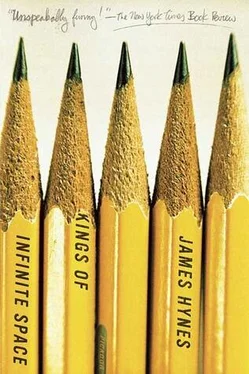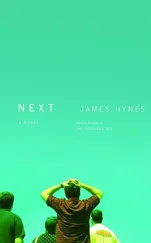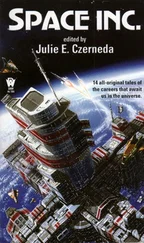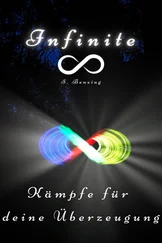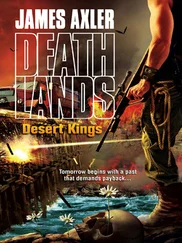A watermark,
with our compliments
Paul blinked numbly at the Post-it. It was blazoned with a smudgy thumbprint, like a seal, and it was creased diagonally, so that it didn’t lay flat against the screen. Behind it, his screen saver trailed endlessly and rapidly across a black void, “ I could be bounded in a nutshell. . I could be bounded in a nutshell. . I could be bounded in a nutshell . . ” Paul lifted his trembling hand and nudged his mouse, and the screen saver flickered out, revealing the gray-and-white screen of Microsoft Word. The RFP file was open, the pages displayed two to a screen, the print too tiny to read. Across each page was a large, gray-scale, diagonal watermark that read, DRAFT DOCUMENT. Slowly, fearfully, Paul lifted his gaze to the black gap in the ceiling tiles, certain he was going to see some pale, bespectacled face gazing back at him, grinning at him with sharpened teeth.
He heard the jingle of keys and the rhythmic thump of rapid footfalls, and he stood and saw Preston’s buzz cut bobbing above the cube horizon. Paul stepped out of his cubicle as Preston jogged breathlessly into the aisle with the heel of his hand on his holstered sidearm. His keys jangled at his belt; his tight little potbelly bounced against the buttons of his shirt.
“What is it?” Preston gasped, his face the color of baked ham. But Paul only stared numbly at Preston’s gun; he hadn’t noticed before that the security guard was armed. But why wouldn’t he be? Paul thought dully. It’s Texas. Everybody carries a gun.
“Son?” said Preston, breathing hard. “What’s goin’ on?”
Paul stepped back and gestured wordlessly through the tech writer’s doorway. With his hand poised over his holster, Preston peered past Paul into the cube, where he noted the dead man’s wide-eyed stare, his gaping mouth, the plastic tube pointed at the zenith.
“There’s a hole in the ceiling,” murmured Paul, and he pointed at the triangular gap overhead with a shaking finger. But Preston didn’t even look. Instead he stepped gingerly past the body in the chair and bent over the tech writer’s desktop, scanning the shingled papers and notepads. He hooked his finger through the handle of the dead man’s coffee cup, lifted it, and sniffed, once, twice. Then he put the cup very carefully back where he’d found it and turned.
“What about her?” He lifted his chin past Paul, towards Renee lying comatose on the desk in the cube across the aisle.
“She fainted,” Paul said.
Preston grunted and stepped across the aisle, his palm against the butt of his pistol. He laid two fingers along Renee’s throat, grunted again when he detected a pulse, and stepped back into the aisle. He clutched Paul’s arm and swung him into the cube with Renee.
“You just set there,” he said, “and keep an eye on her.” He waved his hand at the tech writer’s cube. “And don’t touch nothin’ in that cube there.”
“No chance of that.” Paul dropped into the chair across from Renee.
Paul remembered the next half hour in disconnected pieces. At some point, before the EMS guys came, Renee sat straight up off the desk like the Bride of Frankenstein, took one look at the corpse across the aisle, and passed out cold again. Either before or after that, but before the paramedics, Olivia Haddock marched briskly into the aisle, halted, and gave a little, high-pitched gasp. Paul poked his head out of the unassigned cube, and she gasped again, clutching her purse before her with both hands.
“He died,” was all Paul could manage to say, and she bolted into her own cube, where he remembered seeing her sometime later, perched on the edge of her chair, her purse toppled over on her knees, both hands pressed to her mouth.
He remembered beefy Hispanic paramedics in white, short-sleeved shirts and black, thick-soled shoes; he remembered a pair of cops with professionally even voices, a man and a woman each with a hissing radio clipped to a shoulder. He remembered the clank of an oxygen bottle and the clatter of a collapsible gurney. He remembered the snap of rubber gloves.
“There’s a suspicious white powder in the cup.” Preston hovered at the edge of the scene. “Should I notify the Hazmat team? Should I call the FBI?”
A paramedic sniffed the cup. His plastic name tag read P. HERNANDEZ. “That’s creamer,” he said.
“This fella was in bad shape to begin with,” said the other medic, who had plugged his ears with a stethoscope and was placing the metal disc here and there over the dead tech writer’s body. His name tag read H. QUIROGA. He glanced across the aisle at Paul. “What was wrong with him?”
“Cancer,” said Paul. “I think.”
“Well, bag the cup,” said H. Quiroga. “But I don’t think you can pin this one on Al Qaeda. This ol’ boy just up and died.”
“There’s a hole in the ceiling,” murmured Paul.
“Say what?” said H. Quiroga.
Paul swallowed and said louder, “There’s a hole in the ceiling. A gap.” He pointed, without looking. “In the tiles.”
H. Quiroga peered at Paul, and Preston narrowed his eyes. P. Hernandez, who was lifting the coffee cup by one finger into a large Ziploc bag, looked at Paul as well. Then all three men lifted their eyes to the ceiling. Paul drew a breath and lifted his gaze, too. The suspended ceiling was smooth and undisturbed, all the panels firmly settled in place. Preston and the paramedics craned their necks and surveyed the ceiling in all directions, but the panels as far as anyone could see were flawlessly rectilinear, dwindling in perfect perspective.
“That one,” Paul insisted, his finger shaking, “that one was crooked when I came in.”
The paramedics exchanged a look, but Preston continued to watch the ceiling, turning slowly in place as if he were surveying the constellations. He stroked his moustache, across and down. H. Quiroga coiled up his stethoscope and lifted an eyebrow at Paul. “Did he say anything before he died?” he asked.
“I wasn’t here when he died.” Paul’s throat was so dry he could scarcely speak.
“Did he cry out, ‘The speckled band!’ “ H. Quiroga suppressed a smile. “Sherlock Holmes joke. Nobody ever gets it.”
I get it, you asshole, thought Paul, but he said nothing. P. Hernandez came out of the cube, dangling the cup in the plastic bag, and said to Paul, “Don’t mind him, bro. Hector thinks he sees all this weird shit.”
“I’m just saying,” said H. Quiroga, jerking his thumb over his shoulder at the corpse, “this one looks like he was just plain scared to death.” Then he winked at his partner, and both men laughed.
The next thing Paul remembered, the tech writer was zipped up in what looked like a large, plastic garment bag. He remembered P. Hernandez murmuring to H. Quiroga, when he thought Paul couldn’t hear, “Don’t be scaring the civilians, amigo.” He remembered the rattle of wheels as the gurney rolled away, remembered giving his name and phone number to one of the cops, remembered the ring of blank faces gazing in his direction from all around. He remembered the faces of the Colonel, J.J., and Bob Wier lined up like three pale moons rising over the cube horizon. The Colonel was in the middle and his mouth was moving, though he was too far away for Paul to hear what he was saying. On either side of him J.J. and Bob Wier nodded slowly. Just as long as they don’t smile, thought Paul.
Nolene arrived, and Paul seemed to remember Preston lifting his gaze silently to the ceiling over the dead man’s cube, and Nolene lifting her eyes to the same spot. A glance passed between them, and Nolene nodded. Then she put her massive arm around the trembling Renee and escorted her back to her own cube; from behind, Paul thought numbly, they looked like Pooh and Piglet. He remembered sitting in his own chair in his own cube, drinking a paper cone of water that Preston had brought him. Preston glanced up at the ceiling tiles and lowered his voice. “Are you okay?”
Читать дальше
